The world of holiday property management has exploded in recent years, thanks to the rise of online booking platforms like Airbnb, Vrbo, and Booking.com. While this has provided property owners with exciting opportunities to earn income from their homes, it has also created a highly competitive market. Managing a holiday rental successfully requires a balance of careful planning, excellent guest service, and efficient operations. In this article, we’ll walk you through everything you need to know about holiday rental management, from handling bookings to ensuring guest satisfaction.
Table of Contents
ToggleSetting Up Your Holiday Rental for Success
The first step in holiday rental management is to ensure that your property is set up for guests. A property that is clean, well-maintained, and welcoming is key to attracting positive reviews and repeat business. Here’s how to prepare your space:
Property Setup and Design
- Quality Furnishings: Make sure your furniture is comfortable and in good condition. Guests are looking for a relaxing environment, so invest in a comfortable bed, quality seating, and functional kitchen items.
- Appealing Décor: While you don’t need to furnish your space like a five-star hotel, adding thoughtful touches—such as fresh flowers, artwork, and soft lighting—can make your property feel more inviting and homely.
- Stock the Essentials: Ensure your property is equipped with the basics: clean linens, towels, toiletries, and kitchenware. Going the extra mile with premium toiletries, luxury bedding, or a welcome basket will make your property stand out.
Safety Considerations
- Safety Features: Make sure to install smoke detectors, carbon monoxide detectors, and fire extinguishers. This is crucial not only for the safety of your guests but also for complying with local regulations.
- Clear Emergency Information: Provide guests with emergency contact details, evacuation routes, and safety protocols, so they feel secure during their stay.
Creating an Effective Listing
Now that your property is ready, it’s time to make it stand out online. Your listing will be the first point of contact for most guests, and it’s essential that it paints an accurate and appealing picture of your space. Here are some tips for creating a great listing:
Take High-Quality Photos
- Professional Photography: Invest in professional photos that showcase your property in the best light. Good lighting and well-composed shots can make a huge difference in how appealing your property appears.
- Show All Rooms: Make sure to include photos of every room in your property, from the bedrooms and bathrooms to the kitchen and living spaces. Guests want to see what they’ll be getting, so provide an honest representation.
Craft a Compelling Description
- Highlight Key Features: Clearly describe the size of the property, the number of bedrooms and bathrooms, and any unique amenities (such as a hot tub, swimming pool, or a breathtaking view).
- Set Expectations: Be honest about any potential drawbacks, such as noisy neighbors, limited parking, or steep stairs. Setting realistic expectations will help you avoid unhappy guests later on.
- Location Matters: If your property is near popular attractions or public transport, be sure to highlight this. Guests often choose properties based on their location, so include information on nearby restaurants, parks, or landmarks.
Set Competitive Pricing
- Research the Market: Check out comparable properties in your area to get a sense of what others are charging. Try to set a price that’s competitive but also reflects the value of your property.
- Adjust for Seasons: Prices often fluctuate with seasons, holidays, and local events. Adjust your pricing to reflect demand. Tools like dynamic pricing software can help you automate this process, ensuring you always charge the optimal rate.
Booking Management
Efficient booking management is crucial for keeping your property occupied and maximizing your earnings. Whether you manage a single property or multiple units, staying organized is key. Here’s how to effectively manage bookings:
Use Property Management Software (PMS)
- Centralized System: A property management system (PMS) like Guesty or Lodgify allows you to manage multiple listings across different platforms (Airbnb, Booking.com, Vrbo, etc.) from a single dashboard. This helps prevent double bookings and streamlines communication with guests.
- Automated Calendar Syncing: PMS tools often include calendar synchronization, which means your availability is updated automatically across all platforms whenever you make a change. This minimizes the risk of booking conflicts.
Set Clear Booking Rules
- Minimum Stay Requirements: Set minimum stay requirements to avoid booking short stays that don’t align with your pricing strategy or cause frequent turnovers.
- Instant Booking vs. Approval: Decide whether you want to allow instant bookings or manually approve each guest. Instant booking can help you secure more reservations quickly, while approval-based bookings give you greater control over who stays in your property.
Cancellation Policies
- Flexible vs. Strict: Be sure to choose a cancellation policy that suits your needs and risk tolerance. Flexible policies tend to attract more guests but may result in last-minute cancellations, while strict policies can protect you from losing income but may deter some travelers.
Guest Communication: The Key to Positive Experiences
Clear and prompt communication with guests is essential for a smooth stay and positive reviews. From booking inquiries to post-checkout follow-ups, here are some ways to keep communication top-notch:
Respond Promptly
- Be Quick to Reply: Try to respond to inquiries within an hour. The quicker you reply, the more likely it is that guests will book your property. Many platforms offer automatic messaging features to help you stay responsive, even when you’re not available in real-time.
Clear Check-In Instructions
- Send Pre-Arrival Information: A few days before guests arrive, send them all the necessary check-in details, including the address, parking instructions, and the key handover process (or code for keyless entry).
- Be Available for Questions: Make sure guests know how to reach you during their stay, should they have any questions or issues.
Set Expectations for Check-Out
- Provide Clear Check-Out Instructions: Let guests know what is expected of them at the end of their stay. This could include instructions for locking up, taking out the trash, or leaving linens in a specific location.
Post-Stay Follow-Up
- Thank Your Guests: Always send a thank-you message after guests check out. Express your appreciation for their stay and invite them to leave feedback.
- Encourage Reviews: Positive reviews are vital for attracting future guests. Encourage your satisfied guests to leave a review. This will help build your reputation and improve your chances of future bookings.
Cleaning and Maintenance
A clean and well-maintained property is non-negotiable when it comes to guest satisfaction. Here’s how to stay on top of cleaning and maintenance:
Regular Cleaning
- Professional Cleaning Services: If you manage multiple properties or want to ensure top-tier cleanliness, consider hiring a professional cleaning service. A team of experienced cleaners can ensure that every corner of your property is spotless between guest stays.
- Change Linens and Towels: Always change bed linens, towels, and any other fabrics after each guest’s stay. Fresh linens make a big difference in the guest experience.
- Deep Cleaning: Schedule deep cleaning sessions periodically (e.g., quarterly or semi-annually) to tackle areas like carpets, windows, and vents.
Maintenance and Repairs
- Routine Inspections: Regularly inspect your property for issues that might need repair, such as plumbing leaks, faulty electrical outlets, or broken appliances. The earlier you catch a problem, the less likely it is to affect your guests’ stay.
- Emergency Response: Have a trusted maintenance person or handyman on call for emergencies. Whether it’s a broken appliance or a malfunctioning air conditioner, guests expect quick resolutions to issues during their stay.
Pricing and Revenue Management
Maximizing your rental income requires smart pricing strategies. Here’s how to optimize your pricing and ensure that your property remains competitive in the market:
Dynamic Pricing Tools
- Use Pricing Tools: Tools like PriceLabs, Beyond Pricing, or Wheelhouse automatically adjust your rates based on factors like demand, local events, and seasonality. Dynamic pricing ensures that your rates remain competitive and help you capitalize on peak demand periods.
Offer Special Promotions
- Discounts for Extended Stays: Offer discounts to guests who book longer stays. This can help increase occupancy while providing guests with a better value.
- Early Bird and Last-Minute Deals: Consider offering discounts for guests who book well in advance, or offer last-minute deals to fill any empty nights on your calendar.
Ensuring Guest Satisfaction
Guest satisfaction is paramount to the success of your holiday rental business. Here’s how to ensure guests leave happy and come back for future stays:
Personal Touches
- Welcome Gifts: Small gestures like leaving a welcome basket with local snacks, wine, or a personalized note can make a lasting impression.
- Local Recommendations: Provide guests with a guide to local attractions, restaurants, and activities. Guests appreciate personalized recommendations, and it enhances their overall experience.
Be Responsive and Helpful
- Address Issues Promptly: If a guest encounters a problem, respond quickly and efficiently. A prompt resolution can turn a potentially negative experience into a positive one.
- Be Available for Questions: Let guests know you’re available should they need assistance or have questions during their stay.
Your Journey to Holiday Rental Success Starts Here
Successfully managing a holiday rental property is both an art and a science. Whether you’re managing a local getaway or diving into property management Costa del Sol, every step — from securing bookings to delivering an exceptional guest experience — plays a crucial role in your overall success. By staying organized, being responsive, and continually improving your offering, you can stand out in a competitive market and build a profitable, sustainable business. Remember, great holiday property management is all about creating memorable stays that keep guests coming back — and recommending your rental to others. With the right strategies in place, you’re well on your way to becoming a pro in the holiday rental world.
Ready to take your holiday rental to the next level? Start implementing these tips today and watch your bookings — and guest satisfaction — soar!
FAQS
1. What is holiday rental management?
Holiday rental management involves overseeing all aspects of short-term property rentals, including marketing, guest bookings, property maintenance, and customer service to ensure a seamless guest experience.
2. How do I attract more guests to my holiday rental?
To attract more guests, optimize your listing with high-quality photos, detailed descriptions, competitive pricing, and a strong online presence across multiple platforms like Airbnb and Vrbo.
3. How can I handle guest complaints effectively?
Address guest complaints promptly and professionally. Acknowledge their concerns, offer a solution, and make sure the guest feels heard and valued, which can turn a negative experience into a positive one.
4. What are some tips for setting competitive pricing?
Research similar properties in your area, adjust prices based on seasonality, and use dynamic pricing tools to stay competitive while maximizing your revenue potential.
5. How do I ensure guest satisfaction during their stay?
Provide clear communication, ensure the property is spotless, offer essential amenities, and go the extra mile with thoughtful touches like a welcome basket or local recommendations.

